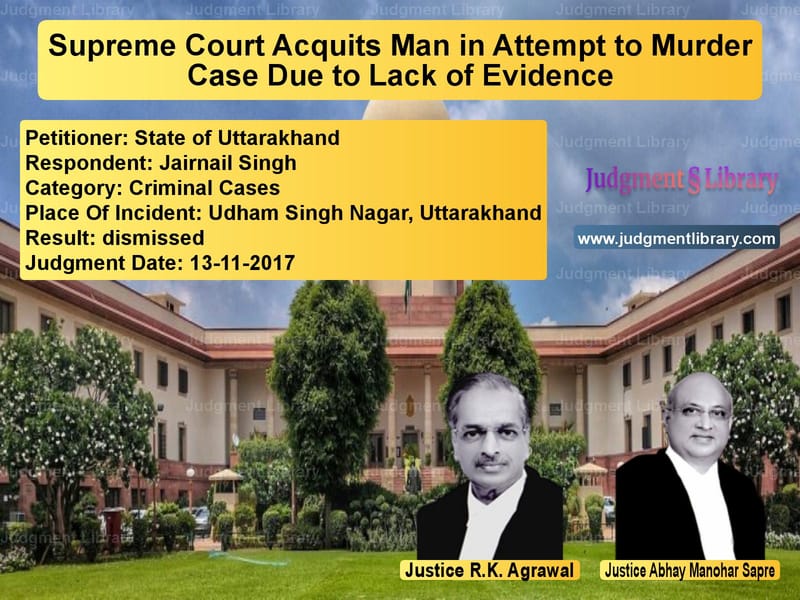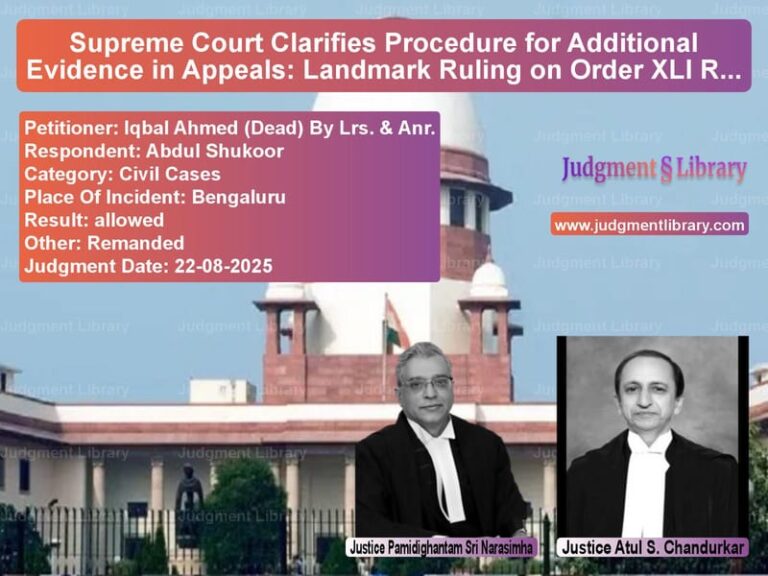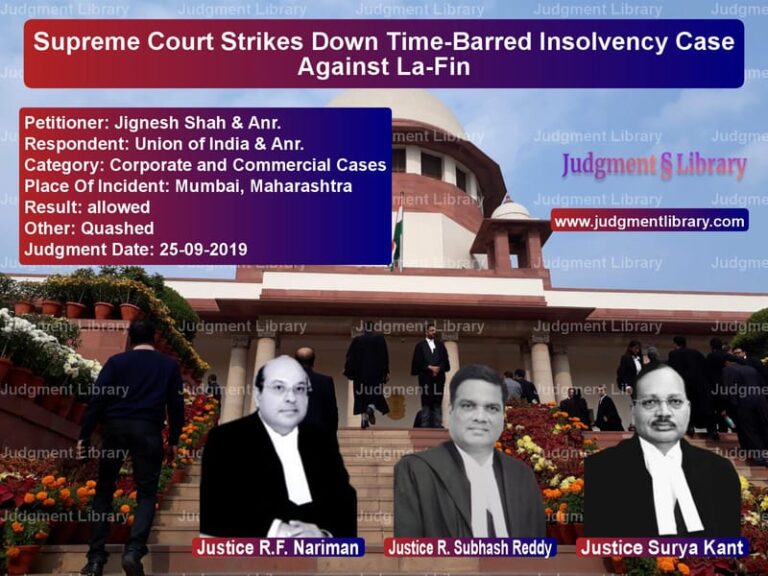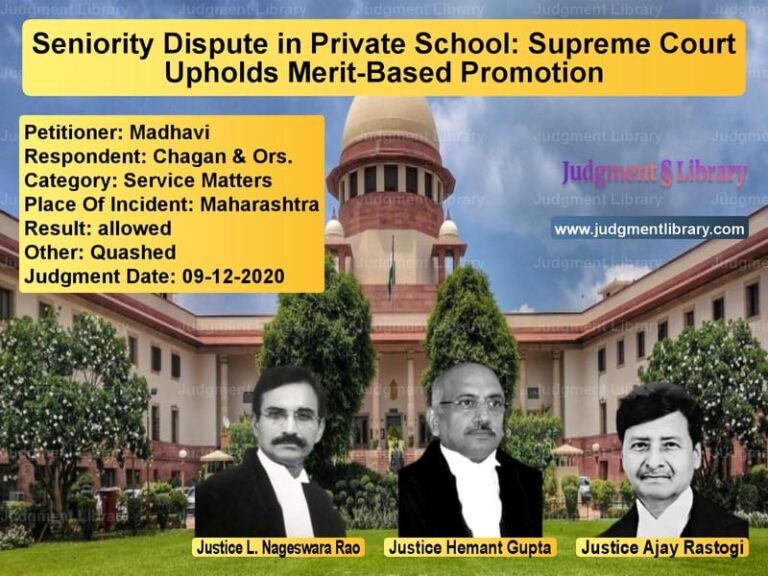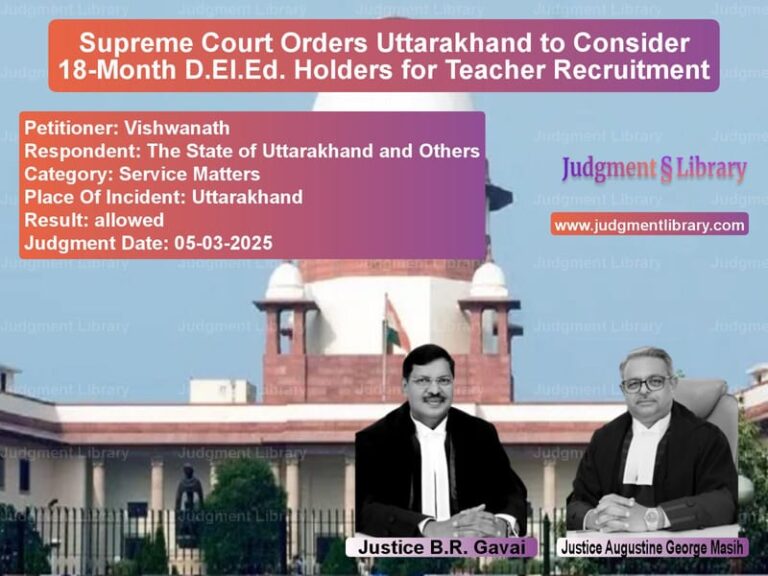Supreme Court Acquits Man in Attempt to Murder Case Due to Lack of Evidence
The Supreme Court of India recently ruled in the case of State of Uttarakhand v. Jairnail Singh, where the State challenged the acquittal of the accused in an attempt to murder case. The case revolved around the shooting of Akbar Ali, allegedly by the respondent, Jairnail Singh. The Court ultimately upheld the acquittal due to inconsistencies in the prosecution’s evidence.
Background of the Case
The case dates back to 12th December 1999, when an FIR was lodged by Asgar Ali, alleging that his brother, Akbar Ali, was shot by Jairnail Singh during a dispute over paddy weighing. According to the FIR, the accused used a 12-bore country-made pistol and shot Akbar Ali in the temple. The injured was taken to a hospital, and the police later arrested Jairnail Singh, recovering an unlicensed pistol from his possession.
Trial Court Proceedings
The Sessions Court found the accused guilty under Section 307 of the IPC (Attempt to Murder) and Section 25(1-A) of the Arms Act (Possession of an Unlicensed Firearm). He was sentenced to:
- 10 years of rigorous imprisonment and a fine of Rs. 5,000 under Section 307 IPC.
- 5 years of rigorous imprisonment and a fine of Rs. 1,000 under Section 25(1-A) of the Arms Act.
Both sentences were to run concurrently.
High Court’s Acquittal
Jairnail Singh appealed to the Uttarakhand High Court, which set aside his conviction and acquitted him. The High Court noted several inconsistencies in the prosecution’s case, including:
- The FIR did not initially name the accused, referring instead to “some sardars.”
- The weapon (pistol) was recovered the next day from the accused’s pocket, which seemed improbable.
- The recovered firearm was not sent for forensic examination.
- Blood-stained clothes and soil were also not sent for forensic analysis.
- Medical evidence suggested that the wound lacked specific marks expected from a close-range gunshot.
The High Court concluded that these inconsistencies raised serious doubts about the prosecution’s case and granted the benefit of the doubt to the accused.
Arguments Before the Supreme Court
The State of Uttarakhand, represented by its counsel, argued that:
- The prosecution’s witnesses (PWs-1, 2, and 3) had given consistent statements about the incident.
- The discrepancies cited by the High Court were minor and did not materially affect the case.
- The trial court had correctly appreciated the evidence and convicted the accused.
In response, the defense contended that:
- The prosecution failed to establish guilt beyond a reasonable doubt.
- The inconsistencies in the investigation were too significant to be ignored.
- The High Court had rightly overturned the conviction based on material deficiencies.
Supreme Court’s Observations
The Supreme Court upheld the High Court’s decision, agreeing that the prosecution had failed to establish guilt beyond a reasonable doubt. The Court noted:
“The inconsistencies in the investigation, particularly the failure to name the accused in the FIR and the lack of forensic examination of key evidence, raise serious doubts about the prosecution’s case.”
The Court emphasized that when an appeal against conviction results in an acquittal, the burden is on the prosecution to show that the acquittal was based on a complete misappreciation of evidence. It stated:
“Since the State has challenged the order of acquittal, unless we notice any illegality in the impugned judgment, we cannot interfere.”
The Court also pointed out that it is necessary for an appellate court to assign clear reasons when overturning a conviction, and in this case, the High Court had provided a detailed analysis of the inconsistencies in the prosecution’s case.
Final Judgment
The Supreme Court dismissed the appeal, affirming the acquittal of Jairnail Singh.
The Court held:
- The High Court’s reasoning was sound and based on a proper appreciation of evidence.
- The deficiencies in the prosecution’s case were too significant to ignore.
- The benefit of the doubt was rightly extended to the accused.
Conclusion
This case highlights the importance of a robust prosecution and meticulous investigation in criminal trials. The Supreme Court’s ruling reiterates that inconsistencies in prosecution evidence can lead to acquittals, ensuring that convictions are based only on sound and credible proof. It serves as a reminder to law enforcement agencies to conduct thorough investigations and avoid lapses that may weaken otherwise strong cases.
Don’t miss out on the full details! Download the complete judgment in PDF format below and gain valuable insights instantly!
Download Judgment: State of Uttarakhand vs Jairnail Singh Supreme Court of India Judgment Dated 13-11-2017.pdf
Direct Downlaod Judgment: Direct downlaod this Judgment
See all petitions in Attempt to Murder Cases
See all petitions in Fraud and Forgery
See all petitions in Custodial Deaths and Police Misconduct
See all petitions in Judgment by R K Agrawal
See all petitions in Judgment by Abhay Manohar Sapre
See all petitions in dismissed
See all petitions in supreme court of India judgments November 2017
See all petitions in 2017 judgments
See all posts in Criminal Cases Category
See all allowed petitions in Criminal Cases Category
See all Dismissed petitions in Criminal Cases Category
See all partially allowed petitions in Criminal Cases Category

